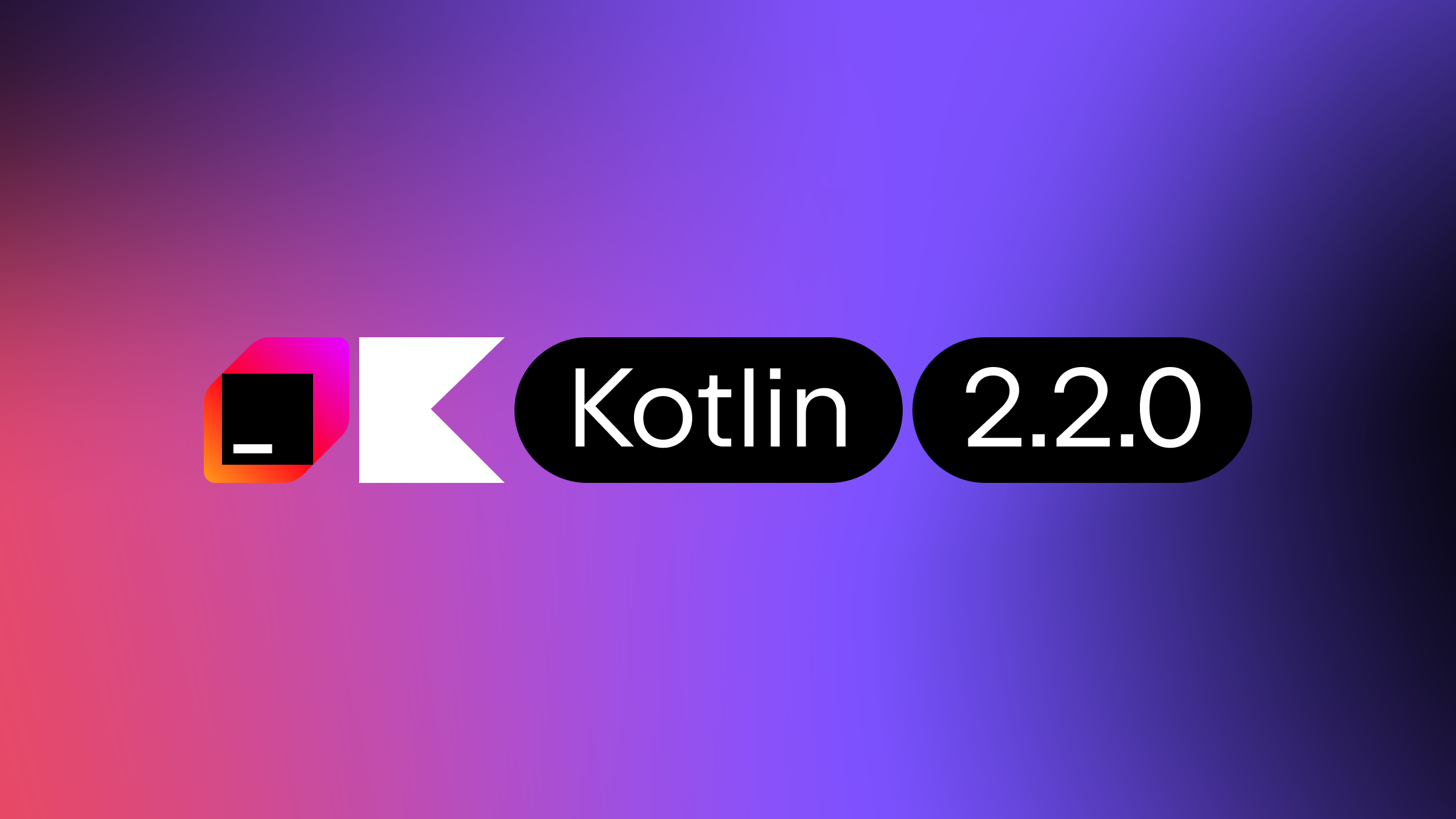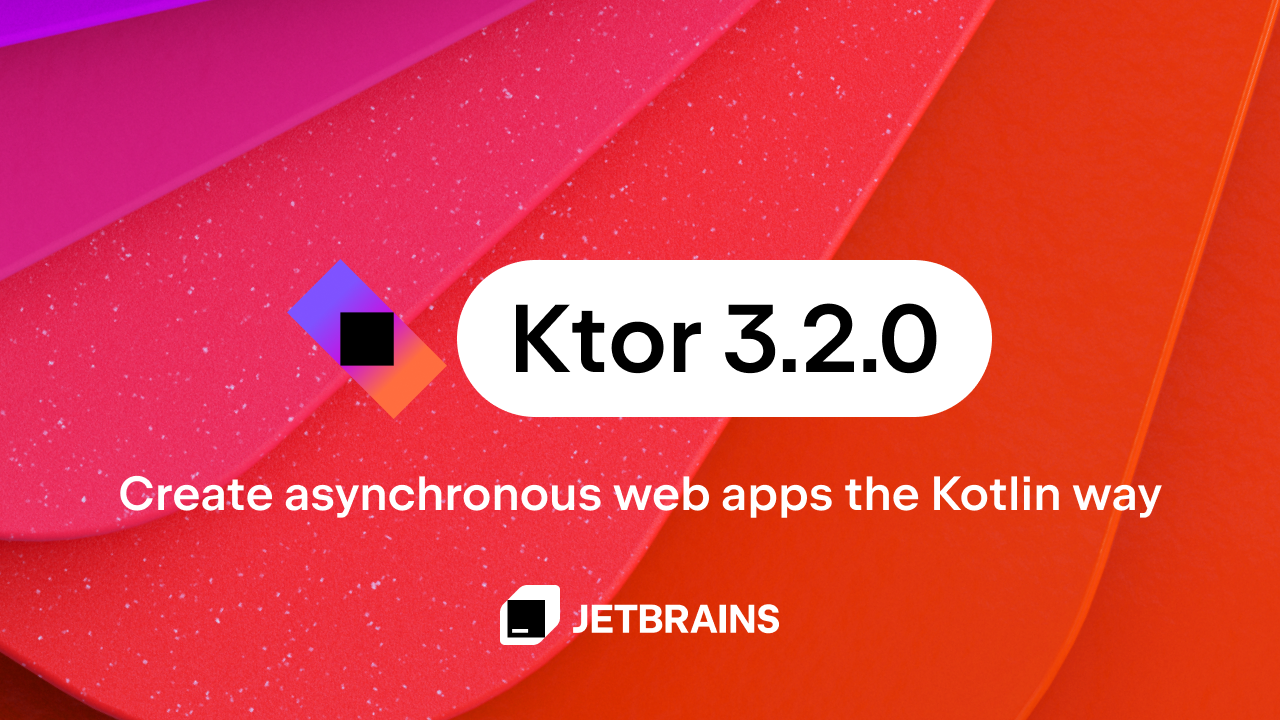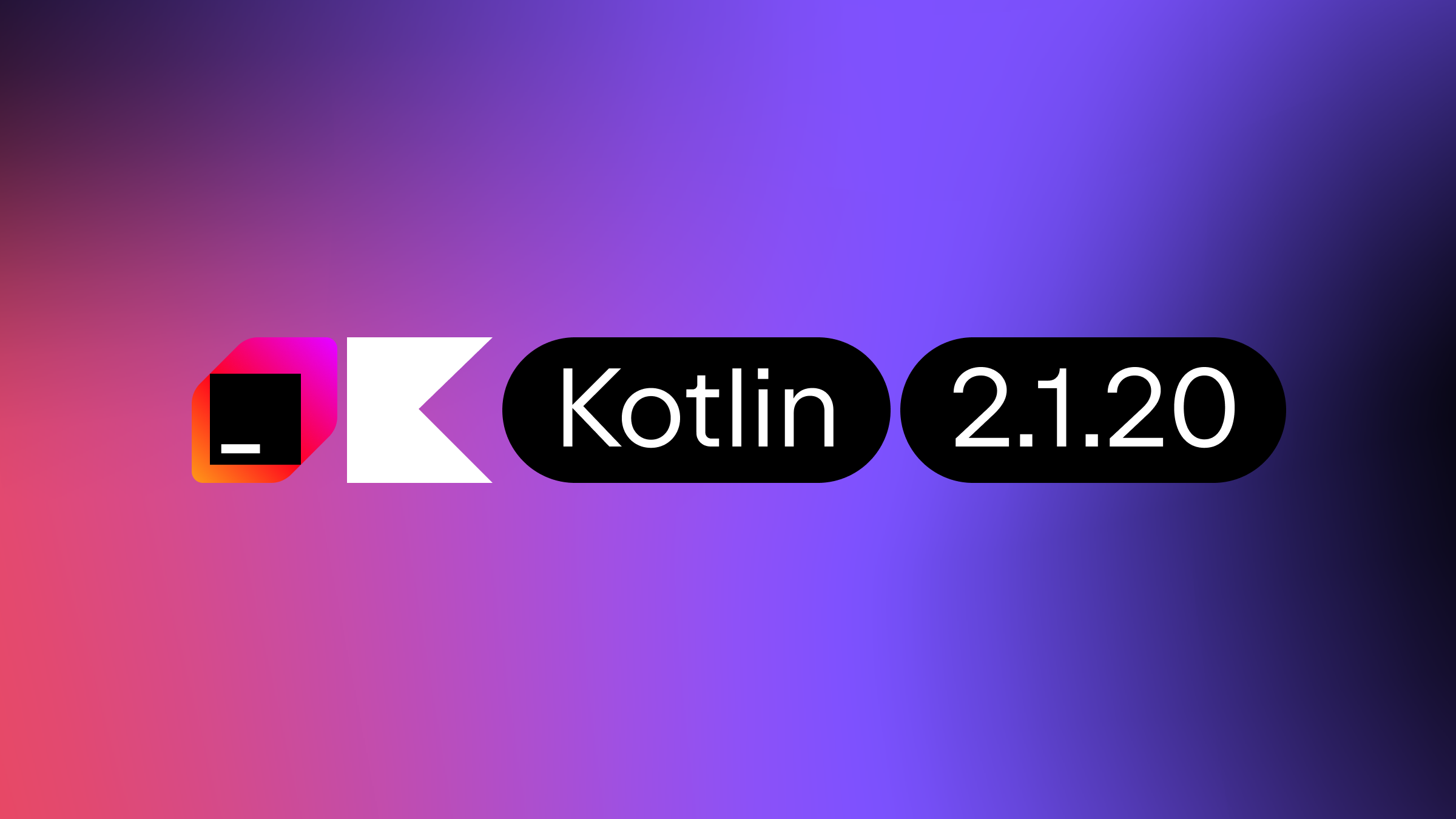Kotlin
A concise multiplatform language developed by JetBrains
Kotlin 1.0.6 is here!
We are happy to announce the release of Kotlin 1.0.6, the new bugfix and tooling update for Kotlin 1.0. This version brings a significant number of improvements related to the IDE plugin and Android support.
We’d like to thank our external contributors whose pull requests are included in this release: Kirill Rakhman and Yoshinori Isogai. We also want to thank everyone of our EAP users for their feedback. It is really valuable for us, as always.
You can find the full list of changes in the changelog. Some of the changes worth highlighting are described below.
Convert try-finally to use() intention
We continue to add intentions for converting code to idiomatic Kotlin. The IDE now automatically suggests to replace try-finally block with the use() call when all the finally block does is closing a resource.

“Add names to call arguments” intention
Named arguments help to increase code readability. With the new “Add names to call arguments” intention you can easily add the name to an argument, or just substitute names for all call arguments at once.

Other notable IDE plugin changes
- Inspection/intention for removing empty secondary constructor body, as well as empty primary constructor declaration;
- “Join declaration and assignment” intention;
- Fixes for inline functions and performance improvements in debugger;
- Numerous fixes in intentions, KDoc and Quick Doc.
Android Support
- Android Studio 2.3 beta 1 is now supported, as well as the Android Gradle plugin version 2.3.0-alpha3 and newer.
- “Create XML resource” intention is added;
- Android Extensions support is now active in the IDE only if the corresponding plugin is enabled in the
build.gradle; - Significant number of fixes in Android Lint. Also the “Suppress Lint” intention is added.
Kapt Improvements
We continue to work on the experimental version of Kotlin annotation processing tool (kapt). While there are still some things to do in order to fully support incremental compilation, performance of the annotation processing is significantly increased since Kotlin 1.0.4.
To enable experimental kapt, just add the following line to your build.gradle:
apply plugin: 'kotlin-kapt'
All-open compiler plugin
The all-open compiler plugin makes classes annotated with a specific annotation and their members open without the explicit open keyword, so it becomes much easier to use frameworks/libraries such as Spring AOP or Mockito. You can read the detailed information about all-open in the corresponding KEEP.
We provide all-open plugin support both for Gradle and Maven, as well as the IDE integration.
How to use all-open with Gradle
buildscript {
dependencies {
classpath "org.jetbrains.kotlin:kotlin-allopen:$kotlin_version"
}
}
apply plugin: "kotlin-allopen"
allOpen {
annotation("com.your.Annotation")
}
If the class (or any of its superclasses) is annotated with com.your.Annotation, the class itself and all its members will become open. It even works with meta-annotations:
@com.your.Annotation annotation class MyFrameworkAnnotation @MyFrameworkAnnotation class MyClass // will be all-open
We also provide the “kotlin-spring” plugin that already has all required annotations for the Spring framework:
buildscript {
dependencies {
classpath "org.jetbrains.kotlin:kotlin-allopen:$kotlin_version"
}
}
apply plugin: "kotlin-spring"
Of course, you can use both kotlin-allopen and kotlin-spring in the same project.
How to use all-open with Maven
<plugin>
<artifactId>kotlin-maven-plugin</artifactId>
<groupId>org.jetbrains.kotlin</groupId>
<version>${kotlin.version}</version>
<configuration>
<compilerPlugins>
<!-- Or "spring" for the Spring support -->
<plugin>all-open</plugin>
</compilerPlugins>
<pluginOptions>
<!-- Each annotation is placed on its own line -->
<option>all-open:annotation=com.your.Annotation</option>
<option>all-open:annotation=com.their.AnotherAnnotation</option>
</pluginOptions>
</configuration>
<dependencies>
<dependency>
<groupId>org.jetbrains.kotlin</groupId>
<artifactId>kotlin-maven-allopen</artifactId>
<version>${kotlin.version}</version>
</dependency>
</dependencies>
</plugin>
No-arg compiler plugin
The no-arg compiler plugin generates an additional zero-argument constructor for classes with a specific annotation. The generated constructor is synthetic so it can’t be directly called from Java or Kotlin, but it can be called using reflection. You can see motivating discussion here.
How to use no-arg in Gradle
The usage is pretty similar to all-open.
buildscript {
dependencies {
classpath "org.jetbrains.kotlin:kotlin-noarg:$kotlin_version"
}
}
// Or "kotlin-jpa" for the Java Persistence API support
apply plugin: "kotlin-noarg"
noArg {
annotation("com.your.Annotation")
}
How to use no-arg in Maven
<plugin>
<artifactId>kotlin-maven-plugin</artifactId>
<groupId>org.jetbrains.kotlin</groupId>
<version>${kotlin.version}</version>
<configuration>
<compilerPlugins>
<!-- Or "jpa" for the Java Persistence annotation support -->
<plugin>no-arg</plugin>
</compilerPlugins>
<pluginOptions>
<option>no-arg:annotation=com.your.Annotation</option>
</pluginOptions>
</configuration>
<dependencies>
<dependency>
<groupId>org.jetbrains.kotlin</groupId>
<artifactId>kotlin-maven-noarg</artifactId>
<version>${kotlin.version}</version>
</dependency>
</dependencies>
</plugin>
How to update
To update the IDEA plugin, use Tools | Kotlin | Configure Kotlin Plugin Updates and press the “Check for updates now” button. Also, don’t forget to update the compiler and standard library version in your Maven and Gradle build scripts.
The command-line compiler can be downloaded from the Github release page.
As usual, if you run into any problems with the new release, you’re welcome to ask for help on the forums, on Slack (get an invite here), or to report issues in the issue tracker.
Let’s Kotlin!
Subscribe to Kotlin Blog updates









